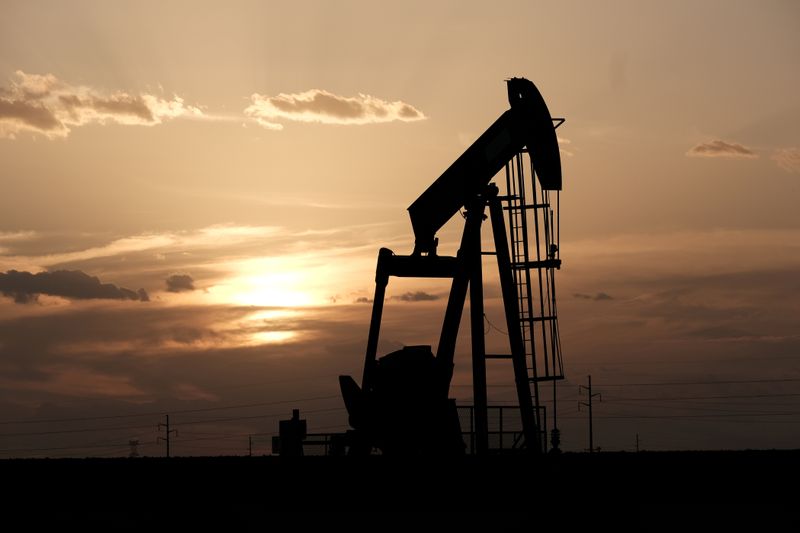By Jessica Jaganathan
SINGAPORE (Reuters) - Oil prices rose more than 1% on Thursday, recouping losses from the previous day on a smaller-than-expected rise in crude oil inventories in the United States, although the gains were capped by uncertainties over cuts by major oil producers.
Brent crude (LCOc1) rose by 78 cents, or 1.5%, to $51.91 per barrel by 0202 GMT, while U.S. West Texas Intermediate (WTI) (CLc1) was up by 69 cents, or 1.5%, at $47.47 per barrel.
Volumes were low, however, reflecting that "there is not a lot of confidence in the moves," said Michael McCarthy, chief market strategist at brokerage CMC Markets in Sydney.
Saudi Arabia and other members of the Organization of the Petroleum Exporting Countries (OPEC), meanwhile, struggled on Wednesday to win support from Russia to join them in additional oil output cuts to prop up prices that have tumbled by a fifth this year because of the coronavirus outbreak.
Saudi Arabia wants extra cuts of 1 million to 1.5 million barrels per day (bpd) for the second quarter, and to keep existing cuts of 2.1 million bpd in place until the end of 2020.
"If OPEC+ settles with something in the middle of the Russian request of no change in cuts and the 1.5 million Saudi goal, that might not be enough to keep prices supported here," said Edward Moya, senior market analyst at broker OANDA.
"OPEC+ needs to send a strong message and anything below 1 million barrels in deeper production cuts will send oil prices sharply lower."
Supporting oil prices, U.S. crude stocks rose modestly in the latest week, while U.S. oil exports surged to more than 4 million barrels a day for the first time since December, suggesting a rise in overseas demand. [EIA/S]
Geopolitical tensions in the Middle East also boosted prices. The Saudi-led coalition fighting in Yemen said it had foiled an attack on an oil tanker off Yemen's coast on the Arabian Sea, the Saudi state news agency SPA reported on Wednesday.

Still, the global spread of the coronavirus has crushed hopes for stronger growth this year and will hold 2020 global output gains to their slowest pace since the 2008-2009 financial crisis, International Monetary Fund Managing Director Kristalina Georgieva said on Wednesday.